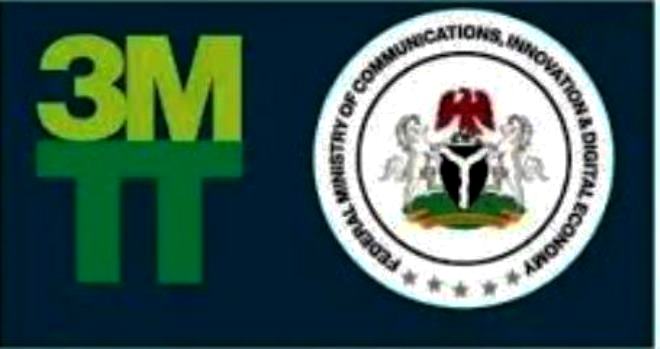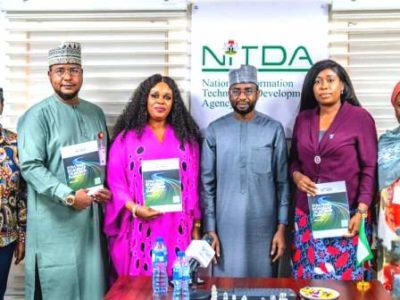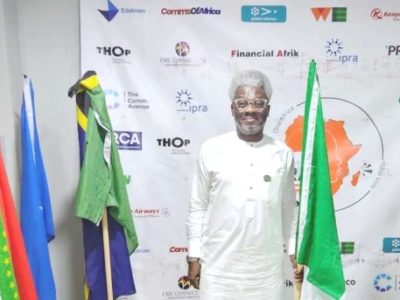By Damilola Olawale and Abubakar A. Ahmad
Nigeria’s Ministry of Communication, Innovation, and Digital Economy’s flagship program, 3MTT (Three Million Talents Technology), which aims to equip young Nigerians with technology skills, is facing serious challenges that cast doubt on its future success.
RELATED: Nigeria targets to train three million technical talents in four years
Launched amid high expectations, the initiative is now grappling with a series of issues that undermine its effectiveness. Among the key problems are financial difficulties hampering the program’s ability to pay partnering organisations responsible for conducting training sessions nationwide. Additionally, there’s a lack of a sustainable framework for placing trained individuals into employment, raising questions about the program’s long-term impact.
Struggling to fulfil financial obligations to partnering organisations
Partnering organisations have voiced dissatisfaction with the payment structure, citing the meager sum of 20,000 naira (approximately $15 USD) per trainee as grossly inadequate. This, they argue, compromises the quality of training they can provide, as they struggle to cover costs and invest in the necessary infrastructure and resources.
Many partnering organisations claimed they have not received any payment despite their participation in the initial phase targeting 30,000 participants. The absence of timely payments has strained relationships and raised doubts about the program’s viability.
“We have not been a kobo – not a single penny out of the miserly N20, 000 per trainee. What kind of training do you give for 20, 000 naira and how do you sustain this scheme on promissory notes? One innovation hub complained in Kaduna.
“I don’t know of any hub that has been paid. We have declined to participate in the second phase as we don’t believe it measures up to our vision of building talent,” said CEO of one tech company in Abuja.
Partnering hubs claimed no payment has been made in respect of the initial phase targeting 30,000 participants, months after that phase ended and the next phase for 270,00, has been launched. The final phase seeks to ramp up participants to the ultimate three million target.
Absence of a sustainable framework
Another challenge facing 3MTT is the absence of a sustainable framework to place successful trainees in employment. While the ministry claimed that the program has successfully trained numerous young Nigerians in various tech skills, many graduates of the 3MTT program are yet to secure places to make meaning of their training and get positioned for upskilling in their areas of expertise.
Partnering organisations are expected to guaranty post-training placements for graduates of the program but this appears seemingly impossible to implement as many of them do not have the “network and the finance to ensure placements.” This has raised concerns about the program’s long-term impact and its ability to contribute meaningfully to Nigeria’s digital economy.
In Port Harcourt the CEO of one tech training institute told IT Edge News: “The ministry is making the claim that a large number of fellows in the first cohort of the program are being placed into jobs as interns all over the country. That is happening only on paper. The facts don’t add up to the claim including the submission that all the fellows from the first phase are now set to be participating in hackathons within their states enabling them to put what they learnt into practice. That too is political talk. I can assure you.”
Reworking the 3MTT
Like any ambitious initiative, the 3MTT faces several challenges impeding its potential success and even threatening its existence.
According to insiders, the program’s conception relied heavily on private sector funding and international grants, but these have not materialized as expected. Some critics argue that the initiative lacks originality, echoing existing efforts by local tech communities and government agencies like the National Information Technology Development Agency (NITDA).
“The idea itself is not original. Talent building and upskilling is what several tech-innovation communities across Nigeria have been committed to in the last decade or so. The National Information Technology Development Agency (NITDA) itself already has identifiable initiatives designed to do just what the 3MTT is proclaiming to do. Maybe what they brought to the table is an attempt to provide a formal single structure for talent building. It would appear that in itself has not been properly handle so you are seeing so much noise and little substance,” said one expert in Lagos.
A senior member of the Innovation Support Network (ISN), the largest network of innovation and tech hubs in Nigeria, agreed. According to him, the 3MTT appeared to be designed around provisioning a sustainable funding mechanisms through private sector funding and international grants outside of government already grappling serious financial challenges; and a body of implementers consisting of training partners largely hubs to execute the training agenda and be paid from money raised from funding-partners.
However, to quote him: “Funding including grants appeared not to be coming as expected. Apart from the well-publicised one billion naira partnership funding from IHS, I don’t know of any other significant financial commitment. It seems the conceivers of 3MTT were unduly enthusiastic and not realistic about the entire game-plan. It sort of fulfils political horn-blowing and nothing more.
“But it can be salvaged. The ministry must recognised that the idea is not exclusive and should rework it to have a bottom-up approach that allows the initiative to be community-owned at the bottom while government though NITDA guides its implementation through policy and other support at the top.”
Ministry officials including aides of the minister are not talking but IT Edge News learnt of a brewing showdown that could undermine the continuity of the initiative touted as a game-changer in the talent industry.
Building synergy, leveraging other MDAs’ strengths
To address these challenges, stakeholders are calling for a more collaborative approach between the Ministry of Communication, Innovation, and Digital Economy and other relevant government ministries, departments and agencies (MDAs), such as the Ministry of Labour. By building synergy and leveraging each other’s strengths, these agencies can work together to create a more comprehensive and sustainable framework for empowering tech talent in Nigeria; and prepare the more gifted ones for the global talent market.
According to one expert, a synergy with the Ministry of Industry, Trade and Investment as well as Ministry of Labour could expand the portfolio for stakeholders participation allowing big companies like Zenith Bank, Dangote Group to participate and provide room for placements once they are incentivised.
Experts emphasize the need for 3MTT to focus on training tech talent that meets global standards, enabling Nigerian youth to compete favourably in the international job market. This requires a more rigorous and industry-driven approach to training, with a focus on emerging technologies and skills that are in high demand globally.
“Despite these obstacles, I am optimistic that with strategic adjustments and greater collaboration, the 3MTT program can fulfil its potential and make a meaningful contribution to Nigeria’s digital economy,” said the head of a state-owned ICT agency in northern Nigeria.
The 3MTT is promoted as ‘a critical part of the Renewed Hope agenda, aimed at building Nigeria’s technical talent backbone to power its digital economy.’































